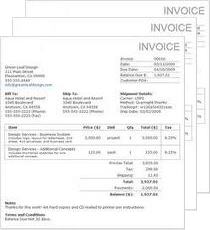Consider Factoring to increase your cash flow.
Any business that invoices other businesses for payment can use factoring to increase cash flow.
Factoring Defined
Factoring refers to an arrangement whereby a factor purchases an account(s) receivable from a business at a discount to the face value of that receivable. The factor earns a fee based on the number of days that the receivable remains unpaid, i.e., the longer the receivable remains unpaid, the larger the fee incurred.
Effectively, the business is no longer dependent on the conversion of accounts receivable to cash from the actual payment from their customers, which takes place on typical 30 to 90 day terms. Businesses benefit from the acceleration of cash flow.
Benefits of Factoring
Any company, whether starting out, experiencing a growth phase, or mature in years needs good cash flow. When a business sells a product or service to a customer, that business provides an invoice stating the products or services sold and the amount the customer has agreed to pay. It is an IOU from the customer to the business. Sometimes these invoices are paid immediately but quite often they are paid anywhere from 7 to 120 days.
This burden of companies extending credit to their customers starves many business of the most essential element for survival – CASH FLOW. By factoring invoices, money can be obtained more quickly and provide much needed capital for the day to day operations of the company.
There are a number of benefits derived from the use of factoring:
• Immediate Access to Cash
• Take Advantage of Early Payment Discounts
• Eliminate Overhead and Invoice Processing Expenses
• Build Your Credit Rating
• No Liability on your Balance Sheet
Advantages of Factoring vs. Bank Financing
Factoring is not a “loan” – it is the sale of an asset. A loan places a debt on a balance sheet, and it costs interest. By contrast, factoring puts money in the bank without creating any obligation to pay it back. Thus having more cash on hand and fewer receivables strengthens one’s balance sheet. Loans are largely dependent on the borrower’s financial soundness.
With factoring, it is the soundness of the client’s customer that matters most – a real plus for new businesses without an established track record. Because factors do not lend money but rather buy invoices, they look at prospective clients differently than a bank. A bank makes a loan with the assumption that the business to whom the loan is made will be stable enough to repay.

Factors look to the stability of the customers of the business clients, because the customers will be paying the factor – not the client. Thus the focus is different; and because the focus is more on the customer than the client, factors often welcome clients that banks turn away.
In addition, factoring avoids the necessity of obtaining funds from venture capitalists, who receive an interest in the business and generally have a say in how the business is run. The business owner saves valuable time waiting for a loan board to grant or deny his or her loan by factoring. Loan boards’ decisions are influenced by many considerations, and the outcome is often unpredictable. With factoring, periodic delays and negotiations are eliminated, allowing the business owner time to do what he or she does best – run the business.
So factoring is not only an excellent means for expanding a business, it may provide the only means when traditional loans aren’t available. Contact Critical Mass Capital today to discuss if Factoring is a good fit for your business.



